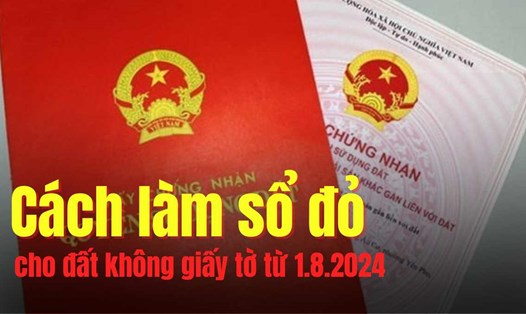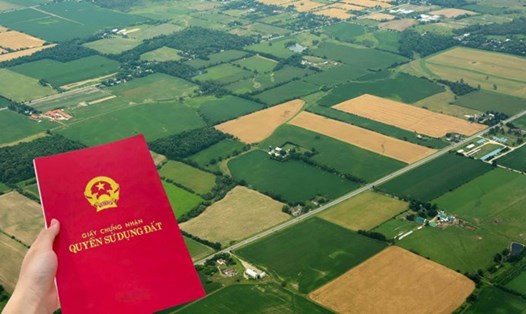Speaking with Lao Dong reporter, lawyer Truong Anh Tu (TAT Law Firm) said that the issuance of red books for land without documents before July 1, 2014 according to the 2024 Land Law aims to ensure legal land use rights for households and individuals who have lived and cultivated on the land for a long time.
Conditions for granting red book
According to the provisions of Article 138 and Article 139 of the 2024 Land Law, households and individuals using land before July 1, 2014 without land use documents will still be considered for red book issuance if the land:
Land is used stably, land is actually exploited or cultivated without dispute.
Land subject to land use planning approved by state agencies.
The land does not violate the law, the land use is not due to fraud, encroachment, or misuse.
Application for red book
Applicants for red book need to prepare documents including:
Application for land and property attached to land registration according to the form issued with Decree 101/2024/ND-CP.
Documents proving land use include land tax receipts, land allocation location, or confirmation from local authorities.
Cadastral map or land drawing to confirm land location.
Procedures for granting red book
The Certificate issuance process includes the following steps:
Submit the application at the Land Registration Office or One-Stop Department as prescribed by the Provincial People's Committee.
Examination and verification: The People's Committee and the Land Registration Office will conduct a legality check.
Information about land and applicants for Certificates is publicly announced to ensure transparency before granting certificates.
After completing the procedure, the state agency grants the Certificate to the applicant.
Related fees
Applicants for the book must pay the following fees:
Registration fee: Usually exempted for land without documents.
Administrative procedure costs: Specified in guidance documents.










